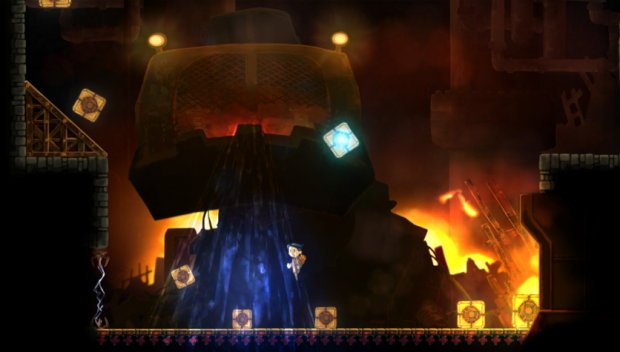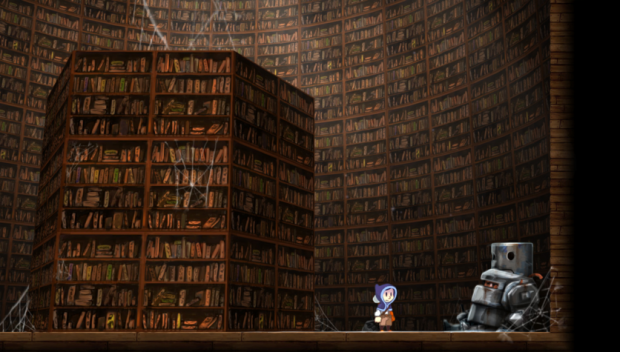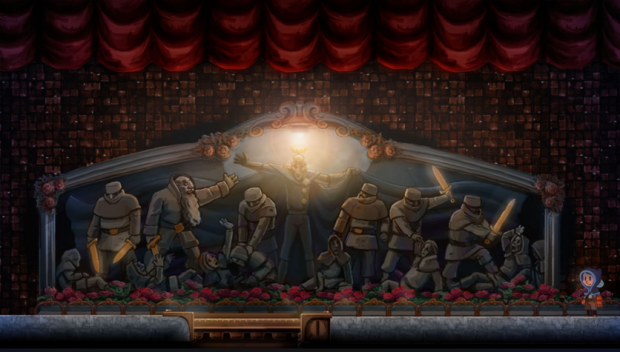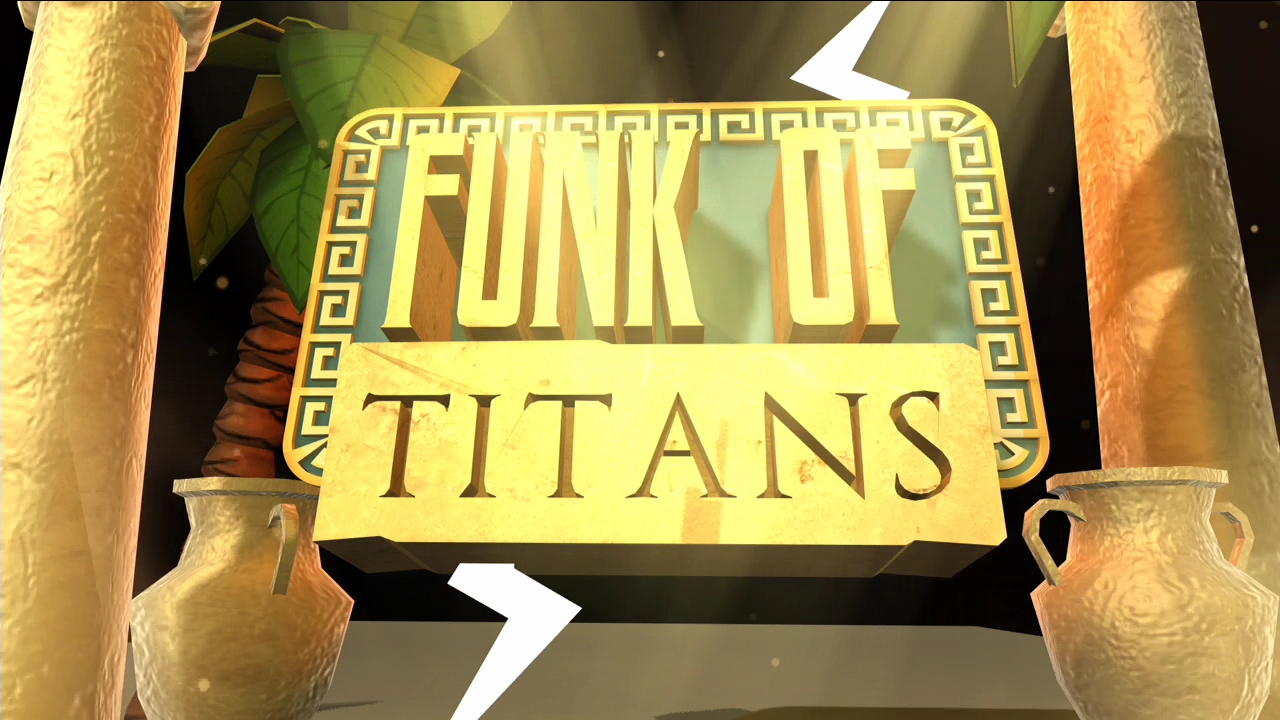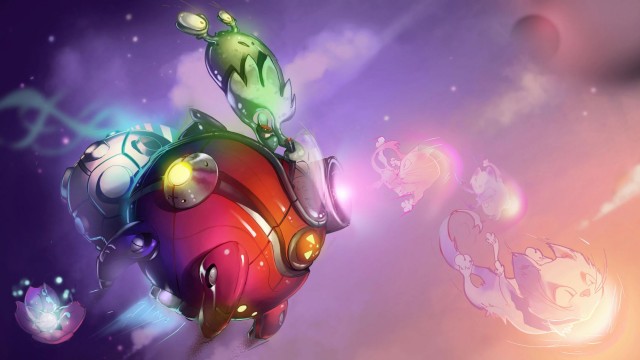Cutting right to the chase, Teslagrad is a beautiful, intriguing, challenging and often incredibly frustrating game blending Metroidvania-style progression with fairly complex 2D puzzle-platforming. It’s a mix that should and often does work, but where developer Rain Games succeeds in creating a haunting, steampunk-inspired rendition of Soviet Europe, it often falters in providing a progressive and rewarding gameplay experience.
Teslagrad begins with a silent, vulnerable protagonist fleeing across an unwelcoming, industrial skyline with no choice but to press on into the belly of an unknown tower. There is no dialogue and no cutscenes, but Teslagrad is a work of art that oozes character from every carefully animated pixel. Almost from the outset, players are presented with a glove enabling them to change the polarity of electrified objects from positive to negative (or vice versa). This is the foundation that underpins almost every element of the game. Unlockable equipment becomes more complex (and more powerful) as you proceed, but the theme of modifying electrical impulses and the items affected by them remain constant, leading to increasingly challenging puzzles. Unfortunately, whilst this learning curve is quite linear, the boss fights that intersperse the brain-teasing are infuriating at best, and the game’s generic platforming elements are a little clumsy, with none of that pleasing weight or precision found in traditional platformers like the Super Mario games.
Here’s what I liked:
Magnetic attraction — Teslagrad is one of the most unique games on the Xbox One today, and the beautifully drawn graphics with their pastel tones and understated comic style are just one reason why. The game also features a lovely, otherworldly soundtrack that compliments the look perfectly, and it is this combination of aural and visual delights, along with the masterful silent cinema approach to storytelling that kept me compelled throughout.
AC-DC — Graphics, sound and storytelling aside, Teslagrad also features a pretty unique approach to gameplay, which, whilst not always perfect, does a fantastic job of maintaining entertaining variations on the theme of electrical manipulation for much longer than I thought would be possible. The basic concept of attracting and repulsing objects is made much more complex due to the superb level design and, later, the introduction of ever-more-exciting equipment and periphery mechanics. As far as Metroidvania-style games go, Teslagrad is heavy on puzzles and light on dexterity-based platforming, which will either enhance or detract from the experience depending on your preference.
Longlife battery — Teslagrad is pretty long and really tough in places, and even if you do finish it, there’s always the challenge mode to contend with. All in all, there’s a solid 10 hours of gameplay here at least, which is nothing to sneeze at considering that many retail titles weigh in at much less than that. This is such a striking game, that there will be folks out there who want to experience it time and time again.
Here’s what I disliked:
Shock therapy — Although I like Teslagrad a lot, I can’t help but criticise the game for featuring the most infuriating boss fights I can remember in any game. The first boss, for example, appears less than an hour into the game, but could easily take an hour or two of repeated attempts to defeat on its own. This problem is a symptom of both Teslagrad‘s pace, and its other problem, which is that it’s a much better puzzle game than it is a platformer. This is a game that expects you to spend your time moving items around the screen using a range of contraptions — sometimes with a little time pressure or danger — and it does almost nothing to prepare players in advance for bosses that require a ludicrous mix of dexterity, skill, endurance and patience. Most bosses require more than three successful attacks, but the player character himself can take only one, at which point the battle must be restarted from the beginning. It’s frustrating to say the least, and if I could use stronger words to preface the word “frustrating” in this review, then I would.
Wrap-up:
Due to frustrating boss fights and clunky-at-best platforming, I can’t recommend Teslagrad wholeheartedly to everyone, but I can tell you that it’s a game that shines brightly and individually even now, more than two years after its original PC release. It tells a beautiful tale, and it does so using unique and innovative gameplay mechanics that work well and remain highly entertaining 99 percent of the time. In summary, Teslagrad is a game that will reward those who are patient and resilient, but I still wish the demands it makes of its audience were fewer, so that more could enjoy it for what it really is.
Score: Try It
Teslagrad was developed by Rain Games and published by Snow Cannon Games on Xbox One. It will be released on March 9, 2016 for $14.99. A copy was provided by Snow Cannon Games for review purposes.


